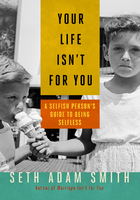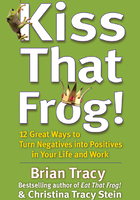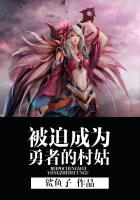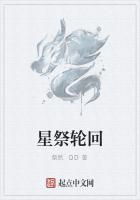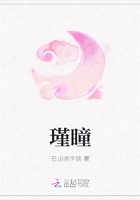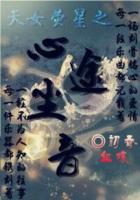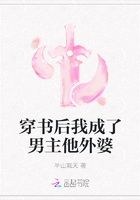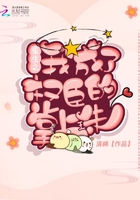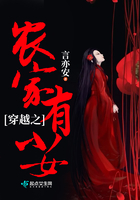I WAS TEACHING A CLASS on courageous followership to a group of doctoral candidates at a Methodist university. Courageous followership is a way of being in relation to leaders. It requires giving those in leadership roles genuine support and building relationships with them that will allow those in follower roles to speak candidly when needed to prevent or correct leadership failures. It was a great class with lots of lively, engaged dialogue. During a break, one of the students came up to me and told a story that made a deep impression on me. This story happened twenty years prior to our conversation.
She had been a young nurse, fresh out of nursing school and assigned to a hospital emergency room. A cardiac patient was rushed in. After a quick assessment, the emergency room physician ordered her to administer the medication he judged the patient needed. She was stunned because she had been taught that this particular medication carried grave risks for a cardiac patient.
For a moment, put yourself in her shoes-in those days, probably uniform white shoes. This was an era when nearly all physicians were male, all nurses female, so the gender-based inequality of power was pronounced. The physician was older and more experienced, so this added to the perceived power differential. And, after all, he was a physician, with years more training than she had! Can you feel how many social forces were at work pushing her to snap to and do what she was told? Can you sense the time pressure to act one way or another with a cardiac patient's life at stake?
She confided that she did not know where the needed courage came from to speak back to this authority figure. She told the doctor that she had been taught that particular medication could be fatal in this patient's situation.
What was the doctor's response? As is so often the case with someone in authority, he bristled at the questioning of his decision and in a raised voice, with a stern glare told her, "You just do it!"
Imagine yourself in that moment. You are in an emergency room. You chose nursing as a profession to help people. You want to be a competent, caring professional. If you act against your training and administer the medication and the patient dies, how are you going to feel? How will you face the patient's family? How will you face a review board that examines actions that were taken? There is no "do-over." But what if the doctor is right and you disobey? What if your refusal to act endangers the life you are trying to save? How will you live with that? And what will be the repercussions of disobedience on your career that you have just spent several years preparing for?
There's no time to hesitate. What would you do?
Seriously, what would you do?
We don't face such obvious life and death choices like this every day, but it is just such a choice that requires us to think about our accountability for obeying or disobeying, regardless of who gave the order. And it gives us a chance to mentally rehearse what it feels like to be under great pressure from an authority figure to do something we feel may be wrong, or even very wrong. When under pressure like this, our ability to make rational or moral calculations may freeze as we are flooded with stress hormones. Our ability to think outside the two choices-obey or disobey-may shut us off from productive alternative responses. The decision to question a forcefully given order usually must be made in a situation of high emotional stress. Will that excuse the choice you make? Will that allow you to fall back on "I was just following orders"?
If you've allowed yourself to feel what this young nurse must have been feeling, you realize that you're at the point where you are going to need to take a deep breath, pump some oxygen to the brain, and quiet your fear sufficiently to make a principled decision.
So I invite you to actually do that now, to keep experiencing what she must have felt like. Take a deep breath. Take a moment. Think about alternatives to responding to the situation you suddenly find yourself in.
Now let's return to the emergency room to see what the young nurse did. This is a paraphrase of what she told me:
"I hooked up the IV bag to the patient, and I injected the medication the doctor had ordered into the bag. Then I called the doctor over and told him the medication was ready to be administered. All that was needed was to open the valve on the IV bag, but that I couldn't do it because it violated my training. He would need to open the valve himself."
Do you see how she found a stance that was neither obeying nor disobeying, but stayed true to the principles she had been taught? Most of the groups to which I tell the story at this point let out low sounds of admiration for the way this newly minted professional found the composure to hold her ground. I certainly do. I am not at all sure that I would have had the presence of mind to generate the option she chose in that intense situation. That is the value of sharing stories. They mentally rehearse us for times when we find ourselves in similar, intense situations.
What was the outcome of this story?
The nurse's requirement that the doctor himself open the valve, if he was indeed convinced that his order was correct, stopped him in his tracks. It was enough to get him to rethink the risks and the other options that were available. He changed his order to administer a different medication, which the nurse promptly did. The patient recovered fully.
What was going on here? Was this an incompetent doctor? Probably not. Just as we put ourselves in the nurse's shoes, we need to put ourselves in the doctor's shoes. He may have been doing his residency at the hospital, a requirement for all physicians. Hospital residencies are infamous for the brutally long hours they require, particularly in the period this occurred. It could be that he was sleep deprived and that his own mental processes were operating at a reduced level. Emergency rooms can be particularly hectic places where the patient load suddenly spikes as several ambulances arrive at once, or violently ill patients begin retching or having seizures in the waiting area. Maybe the doctor himself had a touch of illness he was working over.
None of these conjectures are to excuse bad decisions; they are offered to humanize the authority figure. Whether a doctor, factory manager, fast-food supervisor, school principal, financial executive, or athletic coach, sometimes those in authority are not at their best, yet the responsibilities of their position require them to act. We must be able to see them as both having legitimate authority and human frailty, and at times be prepared to question them, correct them, or even disobey them. Because we can't say "we were just following orders."
Remember that nurse. There is one great role model, whatever your profession.
A few initial lessons we can glean from our engagement with this story:
1. The need for Intelligent Disobedience can arise suddenly and demand a high order of poise to respond appropriately within the compressed time the situation demands.
2. We must give our own perceptions, training, and values equal validity to the perspectives of those in authority when weighing the right course of action.
3. There are often options other than "obey" or "disobey" that can lead to better outcomes.
4. If we take a deep breath and pause to think, we may be able to offer alternative creative responses that satisfy the authority and better meet the need of the situation.




